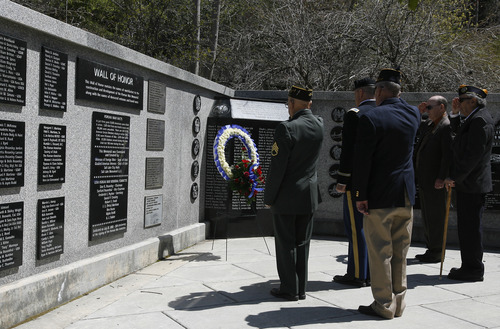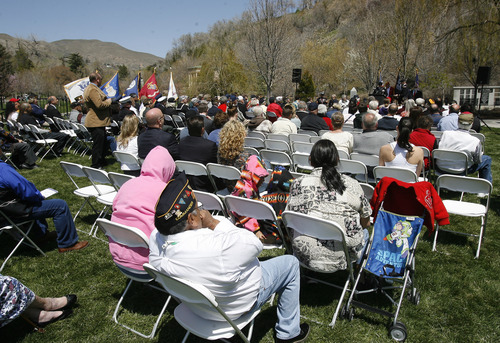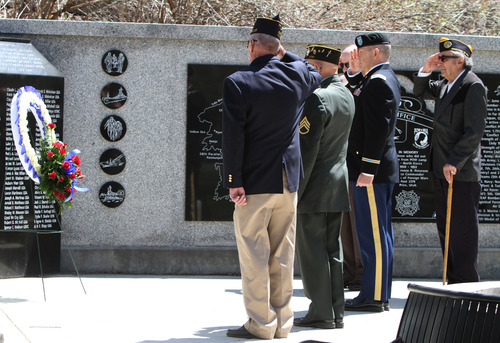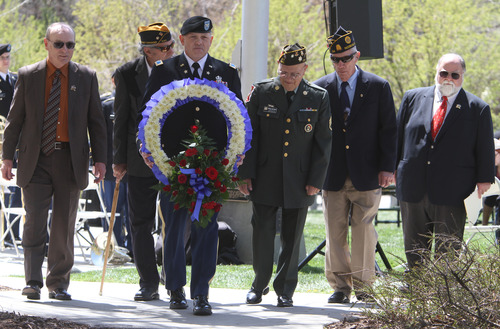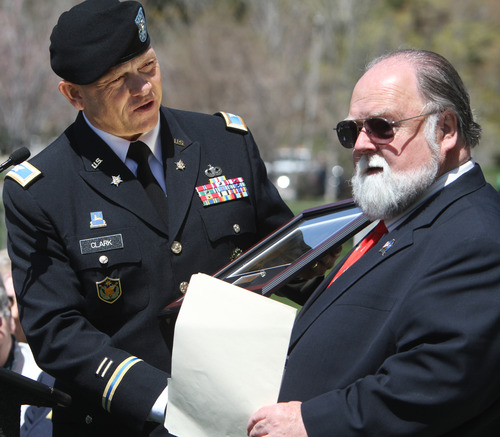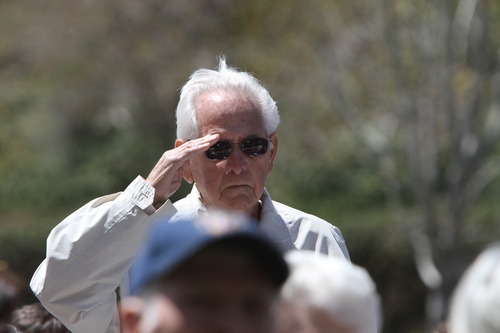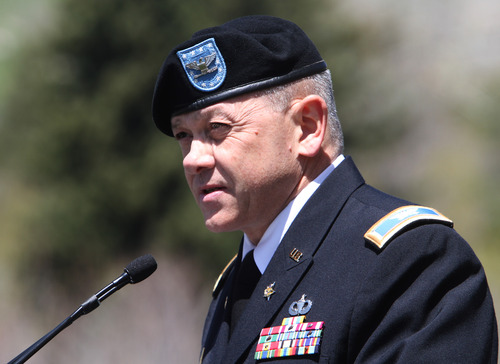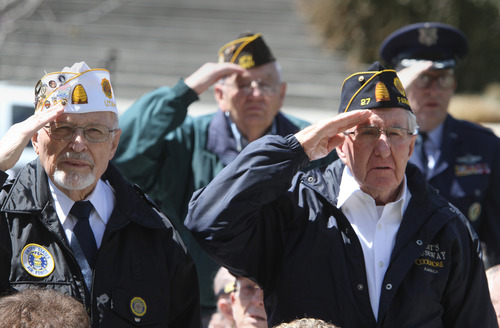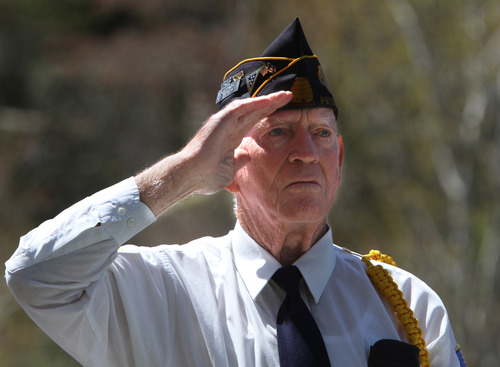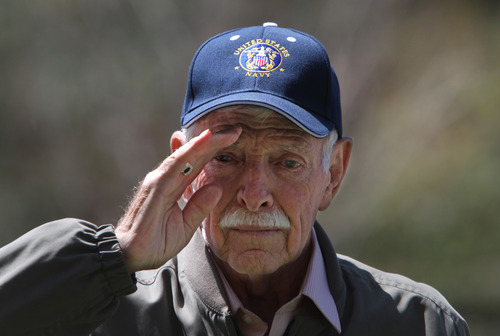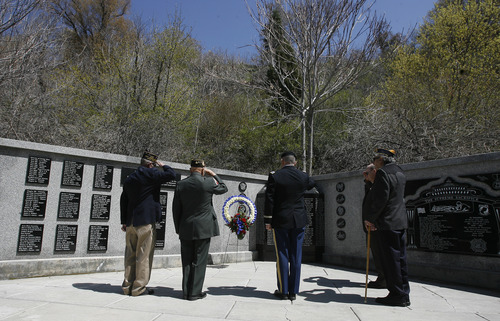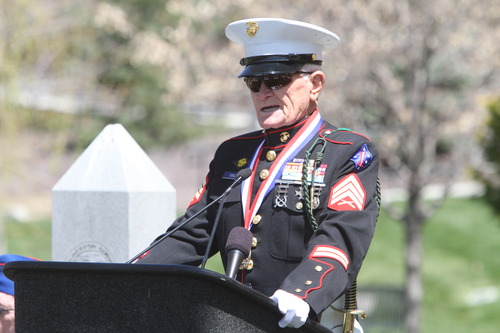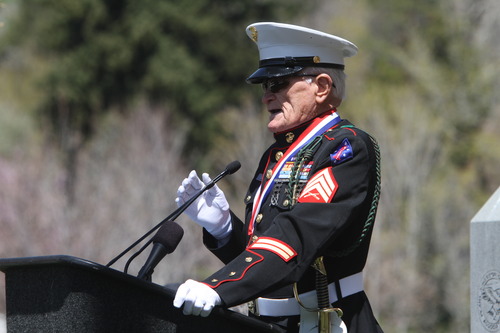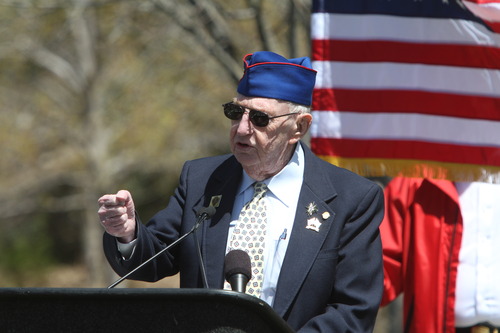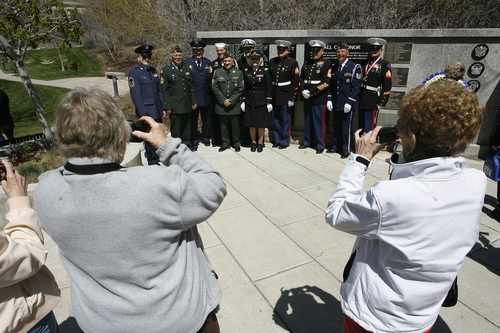This is an archived article that was published on sltrib.com in 2013, and information in the article may be outdated. It is provided only for personal research purposes and may not be reprinted.
The U.S. military's intervention in Korea 60 years ago was a "game-changer in a perilous time in world history," a Pentagon official told nearly 40 Utah Korean War veterans and their families Wednesday.
Col. David J. Clark, director of the Department of Defense's committee commemorating the 60th anniversary of the war, handed out certificates to veterans of what he called "a brutal and bloody" war during a ceremony at Memory Grove in Salt Lake City.
Accompanied by two Utah veterans who served in Korea, Clark laid a wreath on the Korean War monument as a trumpeter played taps.
"It has taken a long time for historians to call what happened in Korea a war," Clark said. "It's been called a police action, a conflict, and at worst, the forgotten war.
"I am here to assure you [that] your country has not forgotten you. Nor have the people of the Republic of Korea [South Korea forgotten what you did on their behalf."
Some 1 million lives were lost in the three-year war, counting South Korea's losses and those of its allies. But those sacrifices prevented communism from spreading south from North Korea on the Korean Peninsula, he said.
Today, South Korea is one of the world's most prosperous democracies, he said.
The United States lost 33,000 men in the war, which ended in July 1953. Another 8,000 were missing in action and their bodies are gradually being recovered.
The Department of Defense says 141 Utahns died in the war, but Clark said the National Battlefield and Monuments Commission puts the number at 154.
Terry Schow, executive director of the Utah Department of Veterans Affairs, estimates 17,000 Korean War-era veterans live in the state.
Don Salas of Roy is one of them. He came to the ceremony with his wife, three children, two of their spouses and three grandchildren, including grandson Patrick Choffel, who at 17 is the age Salas was when he joined the Marines.
Salas was in the Marine Corps for four years, including 16 months in Korea, where he served in communications.
The only time he ever spoke of the war was one Christmas when memories of the bitter cold and filthy conditions brought him to tears, said his daughter, Monica Choffel.
On Wednesday, Salas told of staying on a ship for three days after landing in San Francisco; the Marines' uniforms were filthy and torn and new uniforms had to be found before they were allowed in public, he said.
"I'm proud of what I did," said Salas.
Joseph Tapoof came with his wife and sister from Duchesne to honor his father, John Ioupe, who served in the war.
There were so many members of the Ute Tribe serving in the Korean War that the tribe began dedicating its second Sun Dance each summer to men and women in uniform.
For years after he came home until his death in the 1980s, Ioupe was the organizer of that Sun Dance, his son said.
"Even today, they call it the Veterans or Second Sun Dance," said Tapoof, a Vietnam-era veteran.
Twitter: @KristenMoulton —
Remembering the Korean War
Korean War-era veterans who would like to receive 60th anniversary certificates from the Pentagon can contact the Utah Department of Veterans Affairs, preferably by email: jbedingfield@utah.gov. Phone 801-326-2372.
The Department of Defense plans a final observance of the 60th anniversary on Korean War Armistice Day, July 27, at the Korean War Memorial in Washington D.C.


